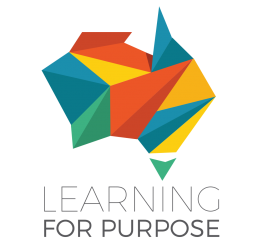
Participate in nation-wide not-for-profit study and get free tools and analytics to help you better understand your workforce
This July the Learning for Purpose initiative, through the Centre for Social Impact at the University of Western Australia will launch the largest research study ever on and for not-for-profit employees and volunteers working at all levels.
The findings of this research will inform not-for-profit practice, policy, and funding and the results will be shared to help accelerate the development of individuals and organisations in the sector.
You can get involved by heading to: learningforpurpose.org/study. The more people who respond, the more representative and useful the results for growing people, organisations, and their impact.
Research Goals
- Understanding the most potent means to make not-for-profit work more developmental, healthy, meaningful, and productive.
- Charting the needs and barriers for developing critical knowledge, skills, and abilities to succeed in the not-for-profit sector.
- Informing not-for-profit leaders, staff, volunteers, and funders on what they can do to address the above.
At the completion of the survey, you'll be presented with a free personal report detailing your job satisfaction, work autonomy, professional development, well-being, work hours, sleep and more.
By completing the survey with your colleagues, you will also be able to access the free Workforce Analytics Dashboard, to help you better understand your workers and organisational needs.
Free Workforce Analytics Dashboard (see live demo)
- Get your own organisational report for science-driven insights on all your employees and volunteers.
- Understand key metrics on learning, engagement, well-being, and more concepts that matter for people, performance, and purpose.
- Compare your position relative to other Australian not-for-profit organisations to learn and improve.
Participation in the survey is open until 31 October 2017.
The Australian Not-for-Profit Workforce Study is brought to you by the Learning for Purpose initiative, the Centre for Social Impact at the University of Western Australia. The study is approved by the Human Research Ethics Committee of the University of Western Australia (RA/4/1/8885). Data is used for research purposes only, securely stored, strictly confidential and subject to legal restrictions.
Facebook comments